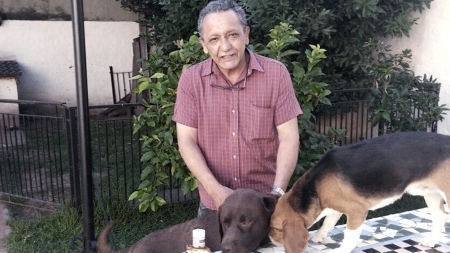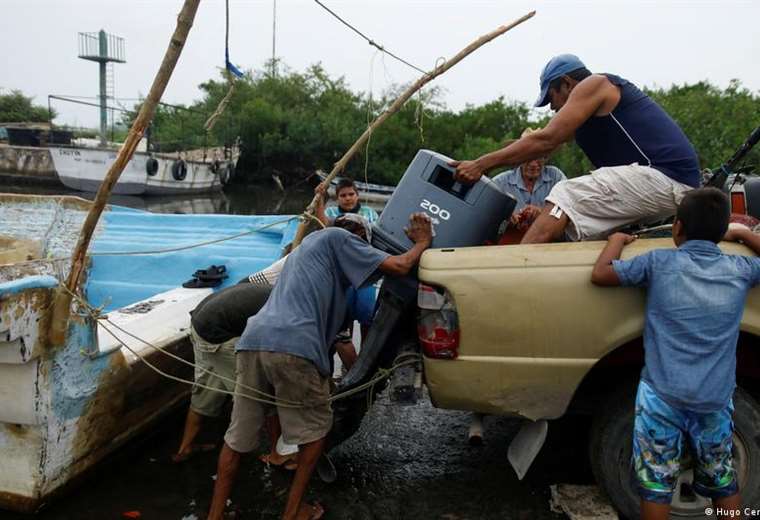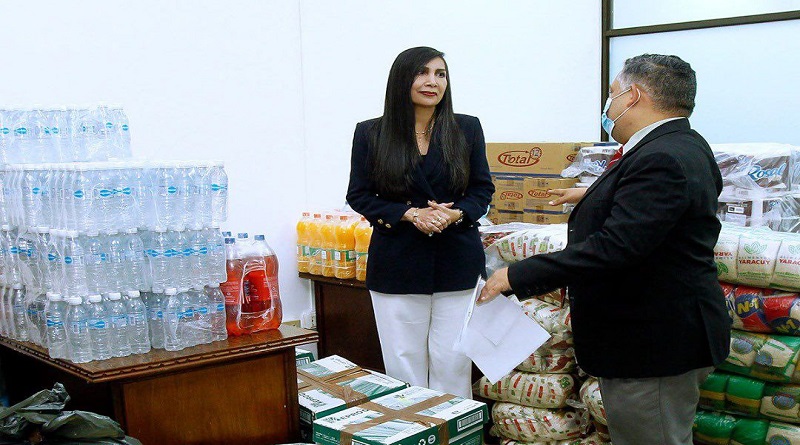An expert report by the Argentine Federal Police (PFA) detected more than 1,600 irregularities in the notebooks written by Oscar Centeno, on the basis of which a case for corruption and illicit association against businessmen and former Kirchnerist officials was founded, which is instructed by the prosecutor Carlos Stornelli.
The work of the Scopometry Division of the Scientific Police confirmed that in the writings that appear in the file there are “several author hands of those corrections, overprints, tested and crossed out, as well as an unexpected change in the speed of the writing with which the later notebooks were written”according to sources close to the defense of businessman Armando Loson, charged in this investigation, told Télam.
The expert work, to which this agency had access, maintains that the irregularities found in the writings were made by “several people”, based on the calligraphic analysis that was carried out.
These corrections and overlays were carried out by private expertise provided last June by Loson’s defense, which is led by lawyer Carlos Vela.
Federal judge Marcelo Martínez de Giorgi, in charge of Criminal and Correctional Court No. 8, in accordance with prosecutor Gerardo Pollicita, ordered at Vela’s request the performance of an “official expert examination” on the originals of notebooks 7, 8 and 4, which appear in the cause.
Adulterations
De Giorgi ordered the official experts to use all the technical and technological means within their reach, such as chromatographic analysis, chemical, optical and light substances, to determine “whether or not the conformed texts belong to the same scriptural hand” and to establish “whether they are appreciated on writings, testados or any type of adulteration or modification of the originally embodied text”, among other requirements.
In the work of the Federal it is corroborated that the expert notebooks were written by Centeno, but not so the infinity of corrections, amendments, superscriptions and erasures.
About it, the official expertise reveals that these adulterations were not carried out by the repentant witness, and the existence of “several acting hands” in these adulterations was proven.
For the defense, “in the official expertise a significant change in the speed of writing and a great difference between the first notebooks and the last ones are highlighted”.
“This could mean that the former were written in ‘log’ form and the latter could have been ‘dictated,'” based on what Loson’s legal representation deduces.
In this sense, it is provided that “in notebooks 7 and 8 there are differences in writing speed, and it is assumed that it could have been dictated.”
Irregularities
The irregularities are also verified in all the corrections analyzed in the writings, such as those in which the name “Armando” appeared instead of “Marcelo” or “Alem 855” for “Alem 942” and others where they said “Alem 985” in its original writing.
“Our hypothesis is beginning to be elucidated that all those irregularities found in the notebooks only sought to involve Loson to weaken him and be able to keep one of his companies linked to the energy sector,” they told Télam from the businessman’s defense.
“Our hypothesis is beginning to be elucidated that all those irregularities found in the notebooks only sought to involve Loson to weaken him and be able to keep one of his companies linked to the energy sector”
In this sense, Loson’s legal representatives question that an expert opinion has not been carried out as fundamental evidence in this case, and raise as a question whether someone intervened in the materials that Centeno wrote and those that were provided to the prosecutor Stornelli.
Loson was president of Albanesi SA for 42 years, a hundred-year-old company of national private capital, which proved in the court case, through the numerous presentations made by his defense, that it is not a construction company, nor a supplier of the State.
The firm also did not participate in public works and is an electricity generator and gas marketer with 11 generating plants distributed in different areas of the country, according to Albanesi sources.
Loson, prosecuted in the case of the notebooks, had filed the complaint after establishing that in Centeno’s notebooks there were erasures, amendments, overwriting and other irregularities that tended to involve him in situations in which he had not participated.
“I noticed that in the misnamed ´photocopies of the notebooks´ (in reality they are digitized copies), ‘true facts’ had been used as a base (a few deliveries of money for political campaigns, 3 or 4 deliveries maximum), but then they misrepresented themselves and invented others,” the businessman had pointed out in his complaint.
And he explained: “Absolutely false events, dates, figures in foreign currency were invented, factual circumstances, names, etc. were modified; and I humbly understand that all of this clearly exceeds the individual action of a person.”
The analysis carried out by private experts (from the Latour Study) allowed the detection of 195 corrections made with what would be white correction fluid, 1,373 on writings, and 55 tested, totaling no less than 1,600 alterations of the original text.
Upon entering the details, the experts on the part detected that on more than one occasion the name “Armando” had been overwritten, with a different letter, above another name – “Marcelo” – that on occasions had not even been corrected in the continuity of the text presented last April.
Accused collaborator
Loson declared as a defendant collaborator in the cause of the notebooks and always said that the money deliveries he made were from his assets – and not from the company he headed – and for electoral campaigns.
This is how he stated it in his complaint: “I want to make it clear that the money I contributed for the electoral campaigns in question is money in national currency that I documented in documents that I had withdrawn from my personal bank account.”
The Notebooks case, which had the late Claudio Bonadio as judge and Carlos Stornelli as prosecutor, broke out in August 2018 when that magistrate ordered a series of simultaneous arrests of businessmen who appeared in the texts and were accused of having paid bribes to public workers.
The case had begun with the testimony of a journalist from the newspaper La Nación (Diego Cabot) who also provided digitized copies of Centeno’s notebooks.
In August 2018, in his second repentant statement, Centeno assured the court that he had burned the original version of the notebooks in which he recorded the details of the trips of public officials with suitcases allegedly full of money.
However, the notebooks reappeared on October 23, 2019, when the journalist Cabot returned to the Stornelli Prosecutor’s Office (which no longer had the case because it had been raised to oral trial), claiming to have received, again, from a person who did not identify 6 of the 8 apparently original notebooks.
In the investigation of the notebook case, businessmen such as Juan Chediak, Ángelo Calcaterra and Carlos Wagner are prosecuted and sent to trial; as well as Vice President Cristina Fernández de Kirchner and former officials of her government, such as Julio De Vido, in addition to the repentant Centeno himself, among others.
















